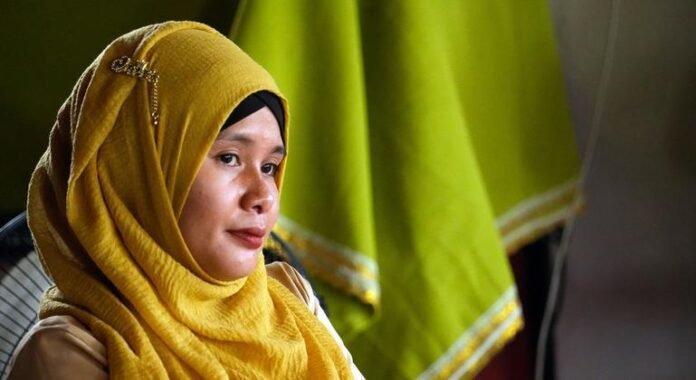Suraida ‘Sur’ Amil was 18 years old when she joined the Bangsamoro Islamic Women’s Auxiliary Brigade (BIWAB). The group’s objective was to achieve autonomy for Muslim-dominated areas of Mindanao.
After the signing of an agreement to end the insurgency and grant autonomy and self-government to the Bangsamoro people, he participated in a reconciliation program supported by the United Nations Office on Drugs and Crime (UNODC) to rehabilitate and rehabilitate former combatants.
“Growing up in Bangsamoro, I saw from an early age how hard my parents’ lives were. He faced various forms of discrimination. For nine years, he witnessed the brutality associated with the martial law declared in 1972. It had a serious impact on many communities in Mindanao, including the entire Muslim population.
My parents had a hard life, being poor they couldn’t fulfill their dreams. It also affected my life and that of my nine brothers and sisters. I wanted to become a teacher, but due to financial problems I could not complete my schooling, which left my dream unfulfilled.
At the age of eighteen I realized that I had to fight for my community’s right to self-determination – not just for the present generation, but for future generations as well.
A friend of mine was a member of BIWAB. As soon as I got the information from them about the team’s objective, I suddenly remembered the pain of my parents. I felt that through this I could improve the condition of my community.
If you ask me which I will choose between war and peace, I will definitely never choose war over peace. But to get that peace we had to fight, I spent time in the forest. It was not easy to live in harsh environment with wild animals in the mountains away from the comforts of home.
But women are very strong; In addition to fighting, they also have an immense capacity to provide for their families.
Pen instead of gun, jilbab instead of military uniform
In 2014, the Peace Agreement for the Bangsamoro (Comprehensive Agreement on the Bangsamoro, CAB) was signed. After that we slowly started to involve ourselves in the normal civic life.

Lipstick replaced my military uniform shoes. Now started writing with pen instead of gun, started wearing jilbab instead of military uniform and started going back from forest and back with my community.
I have taken on the role of a peacemaker, working closely with local people on issues such as gender-based violence and countering violent extremism.
Islam teaches us to be kind to each other, and not to harm others.
There is a saying in Islam that saving one life is equivalent to saving the entire mankind.
I value and take pride in my role as an advocate for peace in my community.
During a workshop discussion on modern forms of communication, I learned awareness and prevention strategies against violent extremism through social media.
Now I am living a peaceful life. I always teach my daughter to fight for her rights when you fight for a great cause, it doesn’t matter if you win or lose. “What really matters is what issue you’re fighting for.”
• Suraida Amil participated in the Strategic Communication Workshop on Preventing and Countering Violent Extremism (PCVE) under the EU-STRIVE programme.

